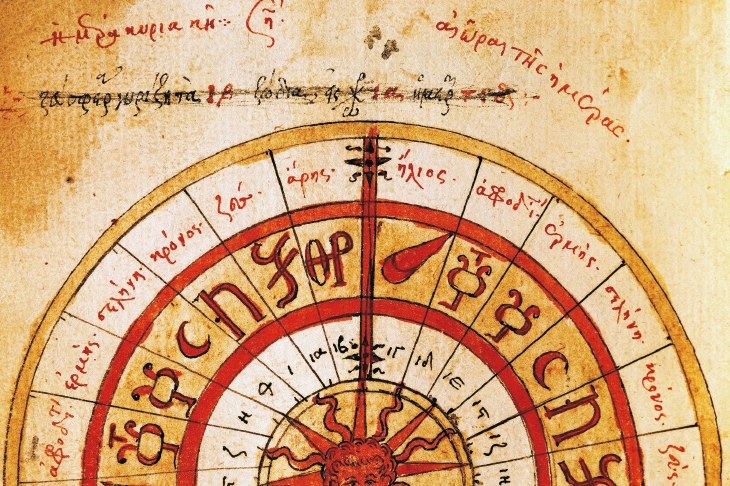This extraordinary book has two main characters: Gershom Scholem (1897–1982), an early Zionist and the founder of the modern study of traditional Jewish mysticism, and the author George Prochnik, who was 28 when he first moved with his then wife to make a new life in Israel. Stranger in a Strange Land has as subtitle ‘Searching for Gershom Scholem and Jerusalem’; but it also tells the story of Prochnik’s search for his own identity. If this sounds complicated, it is. The reader needs to pay attention to the shifts from one period and place to another.
Scholem went to Palestine in 1923 when hardly anybody from the German bourgeoisie made that move. The famous Walter Benjamin (1892–1940) was tied by close friendship to the impossible young Scholem — whose wife, Fanya Freud, remarked that Benjamin was the only person her husband had ever truly loved. Benjamin’s Marx-inflected universalism against Scholem’s Judeo-centric particularism created a permanent intellectual and emotional tension. Benjamin had a capacious mind and, unlike Scholem, has remained a thinker still widely read. He lived in an enormous mansion in Grunewald, a dandy, a precious and self-obsessed young man. Scholem was in a kind of permanent rage with Benjamin but also in awe of him. He hated his own bourgeois family’s lack of culture, and his fanatical dedication to Hebrew and the Holy Land came as a ferocious search for identity.
Readers in the English-speaking world will not find this German milieu easy to understand. By 1914, many bourgeois German Jews had turned literature, the arts and German Kultur into substitutes for acceptance as full subjects of the Reich. When in the 1880s a wave of anti-Semitic violence broke out, Berthold Auerbach, one of the most popular authors of the time, was shattered by it. He wrote to his brother: ‘In vain have I lived, in vain have I suffered.’
Scholem, in 1924, began to fulfil his Zionist dreams. He catalogued the Kabbalah manuscripts and introduced the Dewey Decimal Classification System. His project was deeply German. He saw his study of mysticism as Wissenschaft, an untranslatable German term for science. He became world famous, had an internationally notorious row with Hannah Arendt about her book on Eichmann and died in 1982, a sage, a celebrity and the inventor of a new way to seemysticism.
George Prochnik comes from a mixed family and grows up in the USA. His mother is non-Jewish, and his Jewish father has no faith. Prochnik begins to read Judaica and discovers Scholem, whose mysticism attracts the young American: ‘The intense study of this covert history might somehow replace the obligation to worship.’ Prochnik converts to
this contrarian yearning — the wish for a godless god, and an outlaw’s law, and a revelation that could be stolen from the gilt vaults of orthodoxy, broken up and redistributed among the poor in faith…. And Judaism? Isn’t converting to Judaism in these times a bit like announcing one doesn’t believe in Palestine?
Scholem fascinates Prochnik. As he writes: ‘Enter mysticism. The stage on which the drama of Man’s relation to God unfolds.’
The young couple become Israelis and fall in love with Jerusalem. They have money problems because George cannot get regular employment, though he does get a higher degree. Anna finds a teaching post in an orthodox girls’ school, and she understands that she has to dress in a conventional orthodox way at such a school. He objects and they have a quarrel about that and other aspects of their Jewish life. Yet neither belongs to any Jewish community and they cannot find one.
I read this book with intense interest, not least because I grew up in a world in which Zionism was planting trees and collecting money for the settlers. We never heard about the uprisings and violence. Nobody mentioned the Arabs in the Holy Land or that there were other people there before the Jews came back. One wing of the Zionists took up arms, and the Arab populations rioted and attacked the Jewish settlements. This led to an uninterrupted chain of wars, conflicts, attacks and counter-attacks over the last 70 years with no end in sight. The assassination of Prime Minister Yitzhak Rabin in 1995 destroyed the peace negotiations and crushed the hopes of the two young Americans as well millions all over the Middle East.
The real George Prochnik has become a highly successful prize-winning author. None of that appears in the book. Scholem is Scholem but who is the ‘I’ of the book? Is Scholem real and the George character fictional? If so, why? This final question left me puzzled and fascinated by this very unusual book.






Comments